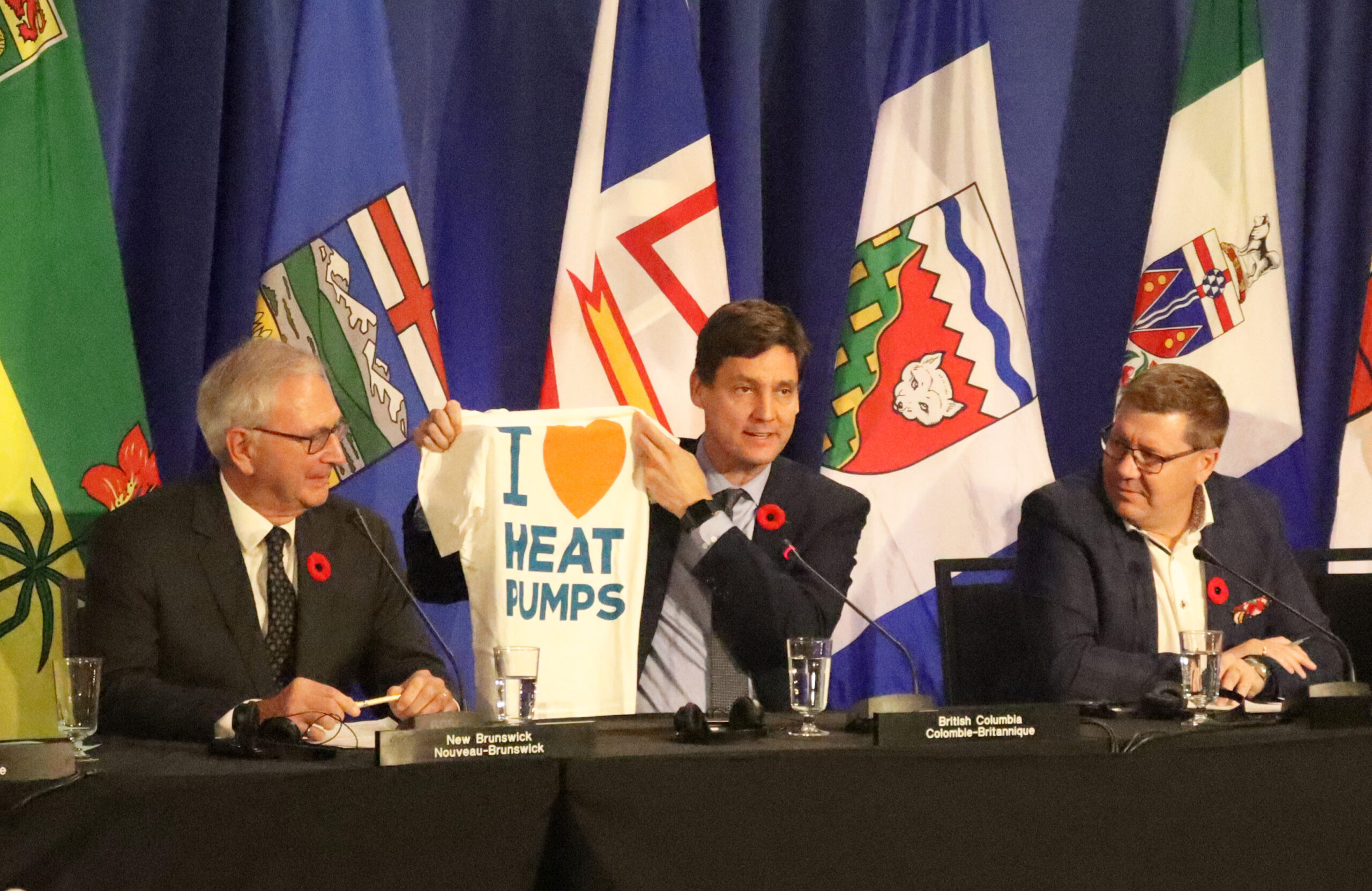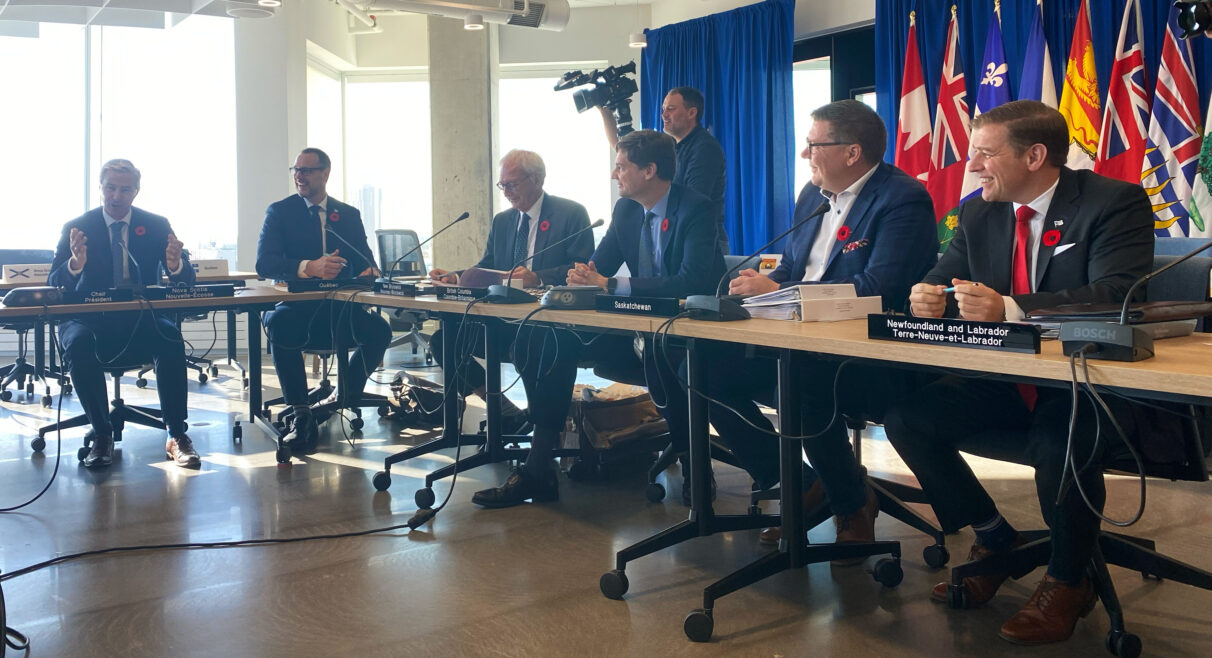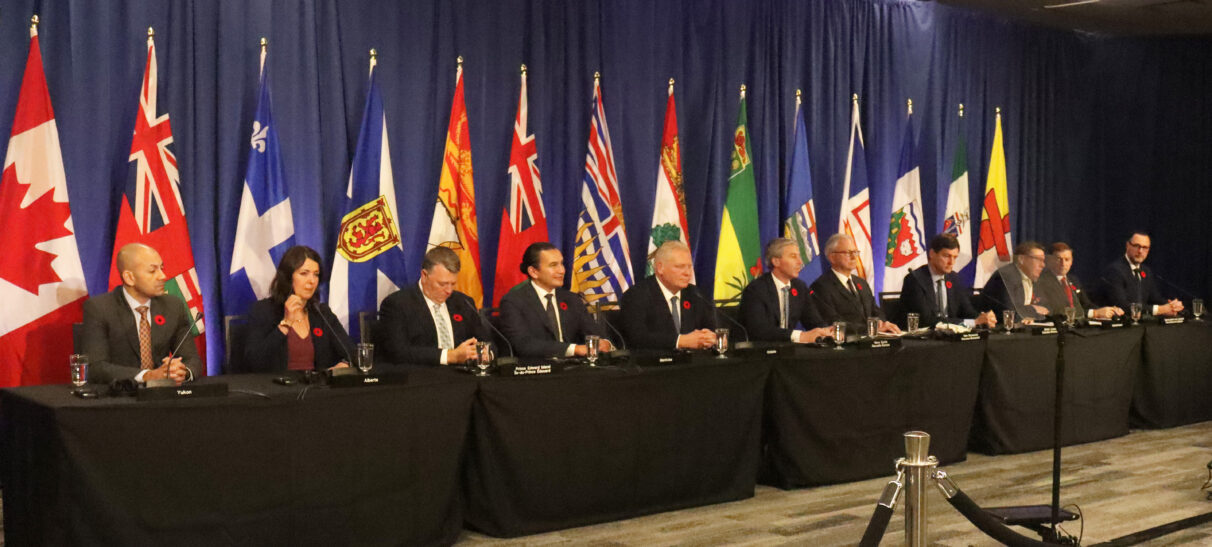B.C.’s Eby at odds with other premiers, supports carbon tax
B.C. premier touts heat pumps at Halifax conference

caption
B.C. Premier David Eby touts heat pumps at the premiers' conference in Halifax on Monday.British Columbia Premier David Eby was an outlier among premiers in expressing support for the federal government’s heat pump program in Atlantic Canada during a news conference on Monday.
Canada’s premiers convened at the Nova Scotia Innovation Hub, to discuss innovation in health-care systems. Premiers of the Northwest Territories, Nunavut and Quebec were absent for the health summit.
Quebec sent Jean-François Roberge – minister of Canadian relations – to represent them.
The summit was the first meeting to be hosted by Nova Scotia Premier Tim Houston as chair of the Council of the Federation. Aside from health care, other issues discussed were affordability, housing and strategic infrastructure.

caption
Nova Scotia Premier Tim Houston discusses issues and innovations in health care with his counterparts from other provinces, in Halifax on Monday.During the news conference, the premiers were asked about their stances on the federal carbon tax.
Eby says that the carbon tax has helped B.C. reduce carbon pollution since 2017 despite the province’s population. He added that “the tax has been about ensuring people are protected, rather than particular heat sources.”
To further emphasize his support for the tax, he held out a T-shirt that said ‘I (heart) heat pumps’ and said it was to show his enthusiasm for the heat pump program in Atlantic Canada.
“We all share that concern. We all have different approaches to address climate change. We all understand the priority,” he said.
Opposition towards the carbon tax

caption
Canada’s premiers hold a news conference after their meeting in Halifax on Monday.Alberta Premier Danielle Smith did not share Eby’s enthusiasm for heat pumps, as “they don’t work particularly well below minus 25.”
She mentioned that despite phasing coal out early on and spending billions of dollars, her province was surprised by the additional taxes levied by the federal government.
She said she “believes strongly” natural gas should be considered a cleaner fuel and exports of it could help reduce carbon emissions.
New Brunswick Premier Blaine Higgs said there is an affordability crisis across the country and that the carbon tax limits Canada from being “a major player to reduce emissions around the world.”
Houston weighed in, saying “it’s not effective.” He called on the federal government to get rid of it and instead work with the other provinces to address climate change.
Newfoundland and Labrador Premier Andrew Furey said the carbon tax has disproportionately affected Atlantic Canadians.
He was happy the federal government granted relief towards the cost of fuels by eliminating the carbon tax on heating oil, but one in five Newfoundlanders still burns heating oil for heat despite the expense.
“It would have cost seniors on fixed incomes extra thousands of dollars, at this time of inflationary pressure,” he said.
Prince Edward Island Premier Dennis King said his government’s position since 2019 has been to work with the federal government in addressing climate change rather than fighting with them.
Saskatchewan Premier Scott Moe said the carbon tax issue itself is not the problem, but how it is being applied.
In the early 80s, Moe said, Saskatchewan invested in transitioning from heating oil to natural gas. As a result, about 85 per cent of residents now use natural gas.
The carbon tax pause does not apply to all forms of heating, according to Moe, and should be applied to all sources of heat.
“The right thing to do, we feel, is for the Canadian government to extend fairness to all Canadian families,” he said.
About the author
Dheif Daniel Yunting
A Filipino reporter now based in Halifax, N.S. Awarded as one of the outstanding interns at the newspaper outlet 'The Freeman' in 2021. Graduated...
